In today’s digital age, the demand for secure and efficient data management is more critical than ever. Blockchain technology has emerged as a revolutionary solution, transforming how data is stored and shared. Unlike traditional databases, a blockchain database offers unparalleled security, transparency, and decentralization, making it an attractive option for businesses and organizations across various sectors.
By leveraging a distributed ledger system, blockchain databases eliminate the need for intermediaries, significantly reducing the risk of fraud and data tampering. As industries continue to explore the potential of this innovative technology, understanding the fundamentals of blockchain databases becomes essential for anyone looking to stay ahead in the rapidly evolving tech landscape.
Table of Contents
ToggleUnderstanding Blockchain Database
Blockchain databases represent a revolutionary approach to data management, utilizing distributed ledger technology. They enhance security, transparency, and efficiency in data handling.
Definition and Key Features
A blockchain database is a digital system for recording data in a way that makes it difficult or impossible to alter, hack, or cheat the system. Key features of blockchain databases include:
- Decentralization: Unlike traditional databases, blockchain databases operate on a peer-to-peer network, ensuring no single entity has control.
- Immutability: Once data is recorded in a block, altering or deleting it becomes near impossible, which secures the history of transactions.
- Transparency: All participants in the network can access the same records, making transactional history visible and verifiable.
- Smart Contracts: These self-executing contracts with the terms directly written into code automate agreements and enhance functionality.
Types of Blockchain Databases
- Public Blockchains: Open networks where anyone can view and participate in the database, exemplified by Bitcoin and Ethereum.
- Private Blockchains: Restricted networks enabling controlled access, ideal for organizations requiring privacy and internal governance.
- Consortium Blockchains: Collaborative networks managed by a group of organizations, merging public and private blockchain characteristics.
- Hybrid Blockchains: Combining elements of both public and private blockchains, allowing customizable functionalities based on user needs.
Benefits of Blockchain Databases

Blockchain databases offer significant advantages that enhance data management practices. Their structure leads to increased security, transparency, and trust among users.
Security and Transparency
Security features in blockchain databases arise from cryptographic techniques. Data remains securely stored and can only be altered by consensus among users. Transparency fosters trust, as all transactions are recorded and visible on a public ledger. For instance, in public blockchains, every participant can verify the authenticity of transactions, reducing the chances of fraud and data tampering.
Decentralization and Trust
Decentralization eliminates the need for centralized authorities, reducing single points of failure. It distributes data across multiple nodes, ensuring that no single entity controls the entire network. This distribution fosters trust, as users engage with a system transparent in its operation. Participants can independently verify transaction histories, reinforcing confidence in the integrity of the data.
Challenges of Using Blockchain Databases
Blockchain databases face several challenges that can impact their implementation and efficiency. Two critical issues include scalability and regulatory considerations.
Scalability Issues
Scalability remains a prominent challenge for blockchain databases. Traditional databases can process thousands of transactions per second, while many blockchain systems struggle to achieve similar rates. Network congestion occurs as user demand increases—this leads to slower transaction times and higher fees. For instance, Bitcoin’s network can handle roughly 7 transactions per second, while Ethereum processes around 30 transactions per second. In contrast, systems like Visa can handle over 24,000 transactions per second. Solutions such as sharding, layer-two solutions, and consensus algorithm optimization aim to enhance scalability, yet implementing these solutions often comes with trade-offs related to decentralization and security.
Regulatory Considerations
Regulatory concerns significantly impact blockchain database adoption. Governments worldwide are exploring how to define and regulate blockchain technologies. Compliance with data protection regulations, such as the General Data Protection Regulation (GDPR) in the EU, poses challenges for decentralized systems, as user data remains immutable. Different jurisdictions may implement varying regulations, leading to legal inconsistencies for companies operating in multiple regions. Navigating these regulations requires blockchain developers and businesses to engage in continuous dialogue with regulators, ensuring adherence while promoting innovation.
Applications of Blockchain Databases
Blockchain databases find extensive use across various sectors, notably in financial services and supply chain management, where their unique capabilities enhance efficiency and security.
Financial Services
Blockchain databases transform financial services by facilitating faster and more secure transactions. With features like real-time processing and reduced transaction fees, they eliminate the need for intermediaries. Heavily utilized in cross-border payments, these databases ensure lower costs and faster transfer times. Cryptocurrency exchanges benefit significantly from blockchain technology, enhancing safety through transparent transaction histories. Additionally, smart contracts automate complex processes, streamline operations, and minimize the risk of human error.
Supply Chain Management
In supply chain management, blockchain databases improve transparency and traceability. They enable real-time tracking of products throughout the supply chain, allowing companies to verify authenticity and origin. Decentralized records reduce the risk of fraud, as all stakeholders can access the same information. Moreover, blockchain technology assists in recalls by providing detailed documentation of product histories. Organizations leverage blockchain to enhance collaboration, as multiple parties can interact seamlessly on a shared platform, fostering trust and accountability in transactions.
Blockchain databases are redefining how data is managed in today’s digital landscape. Their unique features like decentralization and transparency not only enhance security but also build trust among users. As organizations increasingly adopt this technology, understanding its core principles becomes essential for staying competitive.
Despite challenges such as scalability and regulatory hurdles, the potential applications across various sectors are vast. From financial services to supply chain management, blockchain’s ability to streamline processes and improve transparency is undeniable. As innovation continues to evolve, embracing blockchain technology will likely play a crucial role in shaping the future of data management.








